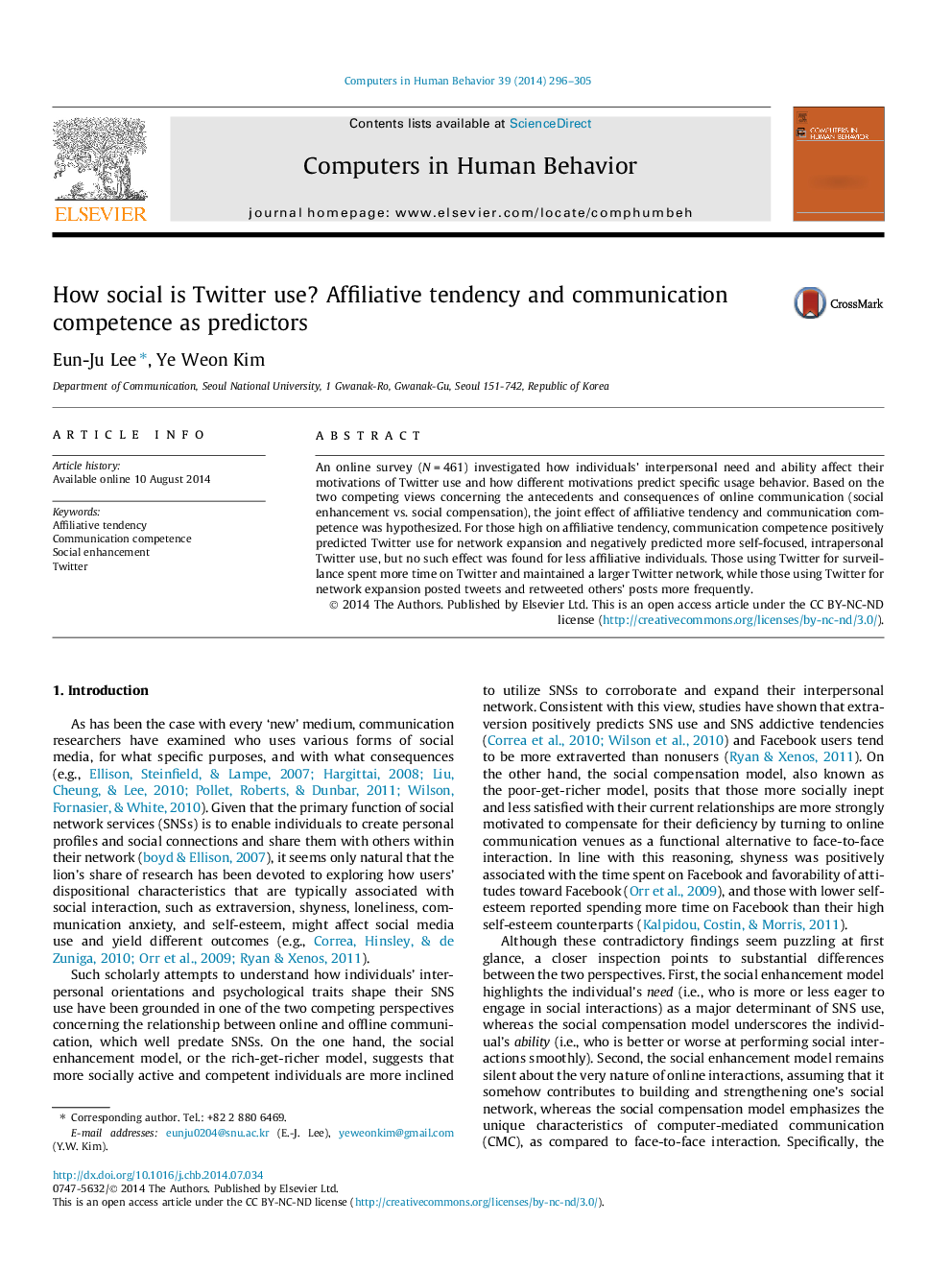| Article ID | Journal | Published Year | Pages | File Type |
|---|---|---|---|---|
| 6838861 | Computers in Human Behavior | 2014 | 10 Pages |
Abstract
An online survey (NÂ =Â 461) investigated how individuals' interpersonal need and ability affect their motivations of Twitter use and how different motivations predict specific usage behavior. Based on the two competing views concerning the antecedents and consequences of online communication (social enhancement vs. social compensation), the joint effect of affiliative tendency and communication competence was hypothesized. For those high on affiliative tendency, communication competence positively predicted Twitter use for network expansion and negatively predicted more self-focused, intrapersonal Twitter use, but no such effect was found for less affiliative individuals. Those using Twitter for surveillance spent more time on Twitter and maintained a larger Twitter network, while those using Twitter for network expansion posted tweets and retweeted others' posts more frequently.
Keywords
Related Topics
Physical Sciences and Engineering
Computer Science
Computer Science Applications
Authors
Eun-Ju Lee, Ye Weon Kim,
